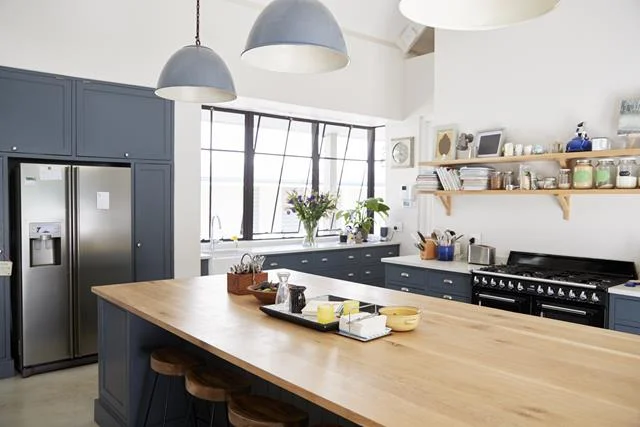Are you looking to create a productive and inspiring study space at home? If so, you’ve come to the right place. In this blog post, we will discuss how to decorate your study table in a way that promotes functionality, organization, and creativity. From incorporating personal touches to optimizing lighting and ambiance, we will cover everything you need to know to transform your study table into an ideal workspace.
A well-decorated study table is essential for creating an environment that fosters focus and productivity. Whether you’re a student or someone who works from home, having a study table that is organized and aesthetically pleasing can make a significant difference in your ability to concentrate and stay motivated. In this article, we will provide you with practical tips and creative ideas for decorating your study table to enhance both its functionality and visual appeal.
Throughout this blog post, we will delve into various aspects of decorating a study table at home. We’ll discuss the importance of good lighting for studying, strategies for personalizing the space with decor that inspires motivation and creativity, as well as tips for creating a distraction-free zone.
Additionally, we’ll explore ways to incorporate technology and gadgets into the decor without sacrificing style. So let’s get started on transforming your study table into a space that encourages productivity and creativity.
Functionality and Organization
When it comes to decorating a study table at home, functionality and organization are key to creating a productive and efficient work environment. Here are some tips for arranging the study table to maximize productivity:
1. Declutter: Start by removing any unnecessary items from the study table. Keep only the essentials such as pens, notebooks, and necessary electronic devices.
2. Use organizers: Invest in desk organizers or storage solutions to keep all your study materials neatly organized. This can include file holders, drawer dividers, and small bins for loose items.
3. Arrange strategically: Place frequently used items within easy reach, while less frequently used items can be stored in drawers or on shelves to free up space on the tabletop.
In addition to these tips, it’s important to create a clutter-free environment that allows for focused studying. By keeping the study table organized and functional, you can create an ideal space for learning and productivity.
Lighting and Ambiance
When decorating a study table at home, it is essential to consider the lighting and overall ambiance of the space. Proper lighting is key to creating a conducive environment for studying and working. Good lighting can help prevent eye strain, improve focus, and boost productivity. One effective way to ensure good lighting is by incorporating a well-placed desk lamp that provides direct light on the work area without causing glare or shadows.
In addition to desk lamps, natural lighting is also crucial for a comfortable study environment. Positioning the study table near a window or in a well-lit area of the room can help in reducing the reliance on artificial lighting during daylight hours. Natural light not only brightens up the space but also has psychological benefits, such as boosting mood and energy levels.
To enhance the ambiance of the study space, consider using adjustable lighting options that allow you to control the intensity and color temperature of the light. Warm white or daylight bulbs are recommended for study areas as they promote alertness and reduce eye strain. Furthermore, adding dimmable lights or LED light strips under shelves or cabinets can create a calming atmosphere for late-night studying.
Improving the lighting and overall ambiance of your study table area can significantly affect your comfort and productivity. By strategically placing desk lamps, utilizing natural light, and incorporating adjustable lighting options, you can create an inviting and functional space for focused studying and work.
| Decorating Element | Recommended Options |
|---|---|
| Desk Lamps | Adjustable desk lamps with warm white or daylight bulbs |
| Natural Lighting | Positioning study table near windows or well-lit areas |
| Ambient Lighting | Dimmable lights or LED light strips for creating a calming atmosphere |
Personalization and Inspiration
When it comes to decorating a study table at home, personalization and inspiration are key factors in creating a space that is not only functional but also motivating and reflective of the individual using it. Adding personal touches to your study table can help create an environment that is uniquely yours, making it a more comfortable and enjoyable place to work or study.
One way to personalize your study table is by incorporating decor that reflects your personality, hobbies, or interests. This could include displaying items such as photographs, artwork, or mementos that hold special meaning to you. Additionally, adding motivational quotes, affirmations, or vision boards can serve as daily reminders of your goals and aspirations, fostering a positive mindset while you work.
DIY decor projects are another great way to add personalized elements to your study table. Whether it’s creating custom artwork, refurbishing old furniture pieces, or crafting handmade accessories, DIY projects offer endless possibilities for adding unique and meaningful touches to your study space.
Incorporating inspirational decor can also help set the tone for a productive study session. Consider adding items such as inspiring posters, decorative accents in your favorite colors, or pieces of decor that evoke a sense of creativity and motivation. Surrounding yourself with items that bring you joy and inspiration can enhance your overall study experience and make your workspace feel more inviting.
| Decor Ideas | Description |
|---|---|
| Personalized Photos | Incorporate photos of friends and family into your desk setup |
| Motivational Quotes | Create or purchase decor featuring motivational quotes that inspire you |
| DIY Projects | Engage in DIY projects such as customized artwork or accessories for added personalization |
Ergonomics and Comfort
When it comes to setting up a study table at home, it’s important to consider not only functionality but also ergonomics and comfort. A well-designed study area can help prevent discomfort and fatigue, allowing for better focus and concentration. Here are some tips for creating an ergonomic and comfortable study space:
- Choose the right chair: Look for a chair with good back support and adjustable height to ensure proper posture while studying.
- Invest in ergonomic accessories: Consider adding cushions, footrests, or even a standing desk converter to create a more comfortable work environment.
- Adjust the table height: If possible, choose a study table that allows you to adjust the height to avoid straining your neck and shoulders.
In addition to ergonomic considerations, adding personal touches and decor elements can also contribute to a more comfortable and inspiring study area. Consider incorporating items like motivational quotes, photos of loved ones, or artwork that resonates with you. Creating a space that reflects your personality and interests can make studying feel less like a chore and more like an enjoyable activity.
Finally, don’t overlook the importance of proper lighting in creating a comfortable study environment. Good lighting is essential for reducing eye strain and maintaining focus. Consider adding a desk lamp with adjustable brightness or positioning your study table near a window to take advantage of natural light.
By paying attention to ergonomics, comfort, and personalization, you can create a study table at home that is both functional and inviting, making it easier to stay focused and productive while studying.
Tech and Gadgets
In today’s digital age, it’s essential to consider the role of technology and gadgets when decorating a study table at home. With the increasing reliance on electronic devices for studying and productivity, it’s important to find ways to incorporate them into the decor without sacrificing style. This section will provide suggestions for organizing and managing electronic devices and accessories on the study table, as well as how to seamlessly integrate technology into the overall aesthetic.
One key aspect of incorporating tech and gadgets into your study table decor is organization. Invest in cable organizers, desk organizers, and storage solutions to keep all electronic devices and their accessories neatly arranged. This not only helps maintain a clutter-free workspace but also improves productivity by providing easy access to necessary gadgets.
When it comes to integrating technology into the overall aesthetic of the study table, consider investing in stylish yet functional tech accessories. For example, choose sleek and modern desk lamps with built-in USB ports or wireless charging capabilities. Opt for stylish laptop stands or monitor risers that complement the overall decor while providing ergonomic benefits. Additionally, consider unique ways to display and store electronic devices when not in use, such as decorative wall-mounted shelves or desktop stands.
By thoughtfully considering how to incorporate technology and gadgets into your study table decor, you can create a space that is both functional and visually appealing. From stylish organizational solutions to chic tech accessories, there are numerous ways to seamlessly blend modern technology with your personal style preferences when decorating your study area at home.
Plants and Greenery
Adding plants and greenery to your study table can not only enhance the aesthetic appeal but can also have several benefits for your overall well-being. Studies have shown that indoor plants can improve air quality, reduce stress, and increase productivity. Incorporating greenery into your study table decor can create a calming and refreshing atmosphere, making it an ideal place for studying and working.
Benefits of Having Plants on the Study Table
Plants have the ability to purify the air by removing toxins and releasing oxygen, which can help in creating a healthier study environment. Additionally, research has shown that being around plants can help reduce stress and anxiety. By having greenery on your study table, you can experience improved focus and mental clarity, ultimately enhancing your productivity.
Suggestions for Low-Maintenance Plants and Stylish Planters
If you’re new to incorporating plants into your study table decor, it’s important to choose low-maintenance options that require minimal care. Succulents, cacti, snake plants, and pothos are great choices as they are easy to care for and can thrive in various conditions. When selecting planters for your study table, consider ones that complement your overall decor style.
Ceramic pots, hanging planters, or geometric terrariums can add a touch of elegance while housing your green companions. Remember to also consider the size of the planter so it fits well on your study table without taking up too much space.
Creating a Distraction-Free Zone
When creating a study area, it is essential to minimize distractions to ensure a focused and productive environment. Here are some strategies for creating a distraction-free zone on your study table at home.
Strategies for Minimizing Distractions
One of the first steps in creating a distraction-free zone is to identify potential sources of distractions and eliminate or minimize them. This may include finding a quiet location in your home, away from high-traffic areas or noisy surroundings. Additionally, using noise-canceling headphones or playing background music without lyrics can help block out external sounds and create a conducive study environment.
Tips for Decluttering and Organizing the Study Table
A cluttered study table can be a significant source of distraction. Implementing effective organization systems such as desk organizers, drawer dividers, and storage containers can help keep the study table tidy and free from unnecessary clutter. By designating specific areas for different items such as stationery, books, and electronic devices, you can maintain a clean and organized workspace that promotes productivity.
Creating a Focused Study Area
In addition to physical decluttering, creating a focused study area also involves mental decluttering. This may include setting specific study hours, establishing boundaries with family members or roommates, and practicing mindfulness techniques to enhance concentration. By intentionally designing your study space to minimize distractions both physically and mentally, you can optimize your learning experience and achieve better results in your studies.
Conclusion and Final Tips
In conclusion, decorating a study table at home is not just about making it look visually appealing, but also about creating an environment that promotes productivity and focus. By optimizing functionality and organization, ensuring good lighting and ambiance, adding personal touches for inspiration, prioritizing ergonomics and comfort, managing tech gadgets effectively, incorporating plants and greenery, and creating a distraction-free zone, you can transform your study area into a space that is conducive to learning and concentration.
Remember to regularly declutter and organize your study table to maintain its effectiveness as a workspace. It’s important to periodically assess the layout and decor of your study table to ensure that it continues to meet your needs as they evolve. Additionally, consider seeking out further inspiration from magazines, online resources, or interior design experts for fresh ideas on how to enhance your study table decor.
With these tips in mind, you can create a study table at home that is not only aesthetically pleasing but also functional and supportive of your academic or professional pursuits. Whether you’re a student or someone who works from home, the right decor can make a significant difference in your ability to stay focused and motivated while at your study table.
So go ahead and personalize your study area with decor that speaks to you – after all, it’s where some of the most important work gets done.
Frequently Asked Questions
What Things Should I Put in My Study Table?
When setting up your study table, it’s important to include items that will help you stay organized and focused. This can include things like pens, pencils, highlighters, notebooks or notepads, a desk lamp, a calendar or planner, a clock, and any textbooks or reference materials you may need for your studies.
What Do You Stick in Front of a Study Table?
Placing a vision board or motivational quotes in front of your study table can be a great way to stay inspired and focused on your goals. You can also stick up a calendar with important deadlines or events to help you stay on track with your studies.
A small whiteboard or bulletin board can also be useful for jotting down quick notes or reminders.
How to Decorate Study Table for Motivation?
To decorate your study table for motivation, consider adding elements that inspire and uplift you. This could include plants or flowers for a touch of nature, motivational quotes or affirmations displayed in frames or on a corkboard, and personal mementos that remind you of your achievements and aspirations.
Keeping the space tidy and clutter-free can also contribute to a more motivating environment. Additionally, including good lighting and comfortable seating can make the study area more inviting and conducive to productive work sessions.

Hello, lovely readers! I’m Sheila Collins, and I’m delighted to be your trusted guide on this exciting journey of home improvement, design, and lifestyle. As the founder and editor-in-chief of Home Guide Blog, I’m passionate about all things related to homes, and I’m here to share my knowledge, experiences, and insights with you.





